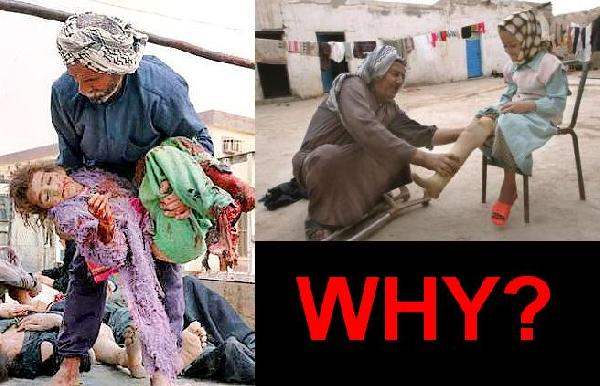| About Us | Contact Us | Calendar | Publish | RSS |
|---|
|
Features • latest news • best of news • syndication • commentary Feature Categories IMC Network:
Original Citieswww.indymedia.org africa: ambazonia canarias estrecho / madiaq kenya nigeria south africa canada: hamilton london, ontario maritimes montreal ontario ottawa quebec thunder bay vancouver victoria windsor winnipeg east asia: burma jakarta japan korea manila qc europe: abruzzo alacant andorra antwerpen armenia athens austria barcelona belarus belgium belgrade bristol brussels bulgaria calabria croatia cyprus emilia-romagna estrecho / madiaq euskal herria galiza germany grenoble hungary ireland istanbul italy la plana liege liguria lille linksunten lombardia london madrid malta marseille nantes napoli netherlands nice northern england norway oost-vlaanderen paris/Île-de-france patras piemonte poland portugal roma romania russia saint-petersburg scotland sverige switzerland thessaloniki torun toscana toulouse ukraine united kingdom valencia latin america: argentina bolivia chiapas chile chile sur cmi brasil colombia ecuador mexico peru puerto rico qollasuyu rosario santiago tijuana uruguay valparaiso venezuela venezuela oceania: adelaide aotearoa brisbane burma darwin jakarta manila melbourne perth qc sydney south asia: india mumbai united states: arizona arkansas asheville atlanta austin baltimore big muddy binghamton boston buffalo charlottesville chicago cleveland colorado columbus dc hawaii houston hudson mohawk kansas city la madison maine miami michigan milwaukee minneapolis/st. paul new hampshire new jersey new mexico new orleans north carolina north texas nyc oklahoma philadelphia pittsburgh portland richmond rochester rogue valley saint louis san diego san francisco san francisco bay area santa barbara santa cruz, ca sarasota seattle tampa bay tennessee urbana-champaign vermont western mass worcester west asia: armenia beirut israel palestine process: fbi/legal updates mailing lists process & imc docs tech volunteer projects: print radio satellite tv video regions: oceania united states topics: biotechSurviving Citieswww.indymedia.org africa: canada: quebec east asia: japan europe: athens barcelona belgium bristol brussels cyprus germany grenoble ireland istanbul lille linksunten nantes netherlands norway portugal united kingdom latin america: argentina cmi brasil rosario oceania: aotearoa united states: austin big muddy binghamton boston chicago columbus la michigan nyc portland rochester saint louis san diego san francisco bay area santa cruz, ca tennessee urbana-champaign worcester west asia: palestine process: fbi/legal updates process & imc docs projects: radio satellite tv |
printable version
- js reader version
- view hidden posts
- tags and related articles
A bomb wounded Iraqi Child, 1 year later.by peace dove Saturday, Mar. 27, 2004 at 4:29 PMIbtihal Jassem was 9 years old when U.S. bombs came crashing into her neighborhood in Basra, Iraq. Those bombs killed her mother, father, three brothers and two sisters... and also dozens of neighbors. Ibtihal was found in the rubble... her right leg almost severed. The grisly Associated Press photo of Ibtihal being carried to a hospital by her uncle, her shattered leg dangling horrifically from her bloody clothes, was flashed all across the world. I remember posting that photograph to several Indymedia websites. Disbelieving war supporters hurled the accusation that the photo was a fraud... a "photoshop job" created by "unpatriotic" Americans. One year later Ibtihal Jassem struggles to adjust as a victim of war in a country that is occupied and in shambles. In the photo, the girl as she was 1 year ago (left), and as she is today (right). Mohammed Chiyad attaches a plastic leg onto his 10-year-old granddaughter Ibtihal, outside her home in Basra. Born deaf and mute, Jassem has lived with her grandparents since the March 22 2003 U.S. bombing of the Mshan neighborhood. (AP Photo /Hussein Malla)
Iraqi Child Struggles to Adjust to Losses
Sun Mar 21, 2004 Associated Press http://story.news.yahoo.com/news?tmpl=story&cid=540&ncid=736&e=8&u=/ap/20040 321/ap_on_re_mi_ea/iraq_bombing_victim By BASSEM MROUE, Associated Press Writer BASRA, Iraq - War robbed 10-year-old Ibtihal Jassem. She lost her right leg. And the little girl who was born deaf and mute was deprived of the security of a loving family. She was the only one in her family to survive a coalition air raid on Basra two days after the war began. An Associated Press photograph of an uncle carrying Ibtihal into the southern city's al-Tahrir Hospital was widely used by news media around the world. Today, while other children are back in school, she spends her days struggling with crutches in the streets of her neighborhood on the outskirts of this southern city. At her grandparents' home, sitting with her 11 cousins, she looks lost, unable to interact or play with them, unable to share in the jokes. Her grandparents and cousins talk to her using a crude form of sign language or by physically carrying or leading her where they want her to go. Ibtihal has lived with her grandparents since bombs hit the Mshan neighborhood last March 22. The explosions killed 34 people, wounded more than 70 and destroyed 21 houses, residents said. Among the dead were Ibtihal's mother, Zakia Ahmed, father, Jassem Mohammed, her three brothers, Ali, 8, Hussein, 3, Rasoul, 18 months, and two sisters, Jinan, 10, and Sikna, 4. "It was a massacre. It was a catastrophe," said Jaber Jouda, 57, the great-uncle who dug Ibtihal from the rubble. He said he found her with her right leg almost severed and her other leg injured. Doctors had to amputate the right leg but were able to save the left. Shaya'a Jaber, Ibtihal's grandmother, now takes care of the girl. She feeds and washes her and helps put on her artificial leg every morning. "She has nothing to do all day. She spends her time with her 11 cousins, taking walks in the streets or playing with her doll," Jaber said as Ibtihal sat on the carpet of the sitting room, playing with her doll. It's not clear how much Ibtihal knows about the events of a year ago. Standing in front of the rubble pile that used to be her family's home, she is asked if she knows what happened to her parents and siblings. She smiles shyly, looks at the ground, turns and hobbles away. story.news.yahoo.com/news?tmpl=story&cid=540&ncid=736&e=8...
Report this post as:
|



